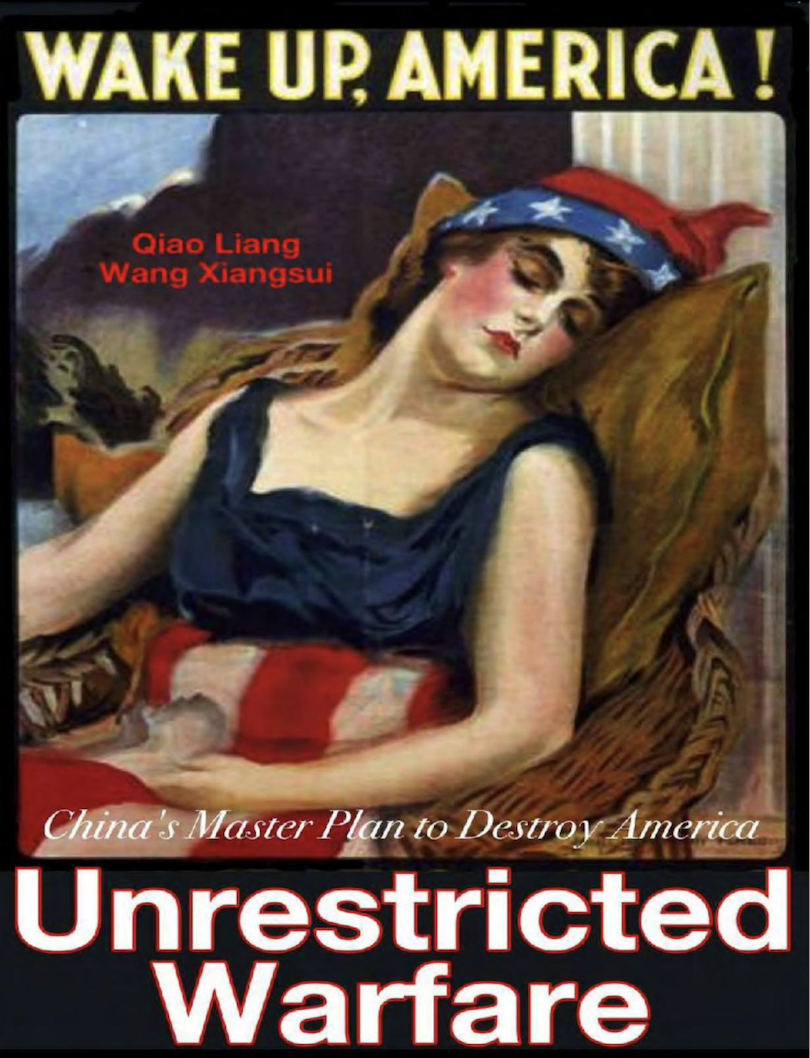 In the rapidly changing landscape of global conflicts, traditional notions of warfare are becoming increasingly obsolete. The 1999 publication “Unrestricted Warfare,” authored by Qiao Liang and Wang Xiangsui, two colonels in the People’s Liberation Army (PLA) of China, has significantly influenced contemporary military strategy by advocating for a broader and more integrated approach to conflict.
In the rapidly changing landscape of global conflicts, traditional notions of warfare are becoming increasingly obsolete. The 1999 publication “Unrestricted Warfare,” authored by Qiao Liang and Wang Xiangsui, two colonels in the People’s Liberation Army (PLA) of China, has significantly influenced contemporary military strategy by advocating for a broader and more integrated approach to conflict.
Expanding the Battlefield
“Unrestricted Warfare” argues that the 21st century demands a redefinition of warfare. No longer confined to conventional military engagements, modern conflicts should encompass economic, political, technological, and psychological tactics. This expansion means that virtually every aspect of an opponent’s society can become a target.
Asymmetric Tactics
One of the central themes of the book is asymmetric warfare. The authors emphasize that weaker opponents can exploit the vulnerabilities of stronger adversaries through unconventional strategies. These include cyber warfare, economic sanctions, terrorism, and media manipulation. By leveraging these tactics, nations and non-state actors can achieve significant strategic advantages without direct military confrontation.
Civil and Military Integration
Qiao and Wang advocate for a seamless integration of civilian and military efforts. They argue that modern conflicts require leveraging civilian technologies and infrastructure for military purposes and using military means to achieve economic and political objectives. This integration blurs the lines between civilian and military roles, making it harder to distinguish between combatants and non-combatants.
The Role of Globalization
In a world where globalization and interdependence are the norms, national security strategies must account for the interconnectedness of global economies and political systems. “Unrestricted Warfare” suggests that targeting an opponent’s economic stability or international standing can be as effective as conventional military attacks. The authors’ insights highlight the vulnerability of nations within an interconnected global system.
Information Warfare
Control and manipulation of information are crucial elements of modern warfare. The book emphasizes the importance of cyber attacks, propaganda, and misinformation campaigns in undermining an opponent’s morale and decision-making processes. These tactics are particularly relevant in today’s digital age, where information spreads rapidly and can have immediate impacts on public perception and governmental decisions.
Implications and Criticisms
The insights from “Unrestricted Warfare” have had a profound impact on military thinking worldwide, particularly concerning cyber warfare and hybrid strategies. However, the book has also faced criticism for promoting an expansive and potentially destabilizing view of conflict. Critics argue that this broad definition of warfare could lead to an escalation of conflicts and undermine international norms governing warfare.
Conclusion
As global conflicts evolve, the lessons from “Unrestricted Warfare” remain highly relevant. Understanding the expansive and integrated nature of modern warfare is crucial for developing effective national security strategies. While the book’s perspectives may be controversial, they offer valuable insights into the complexities of contemporary and future conflicts.
“Unrestricted Warfare” challenges us to rethink the boundaries of conflict and adapt to the multifaceted nature of modern warfare. As nations navigate the complexities of the 21st century, the principles outlined by Qiao Liang and Wang Xiangsui will continue to shape strategic thinking and influence the global security landscape.
References: https://archive.org/details/unrestricted-warfare/mode/2up
Get document PDF here: https://dn720001.ca.archive.org/0/items/unrestricted-warfare/Unrestricted%20Warfare.pdf
Listen to the book here:

